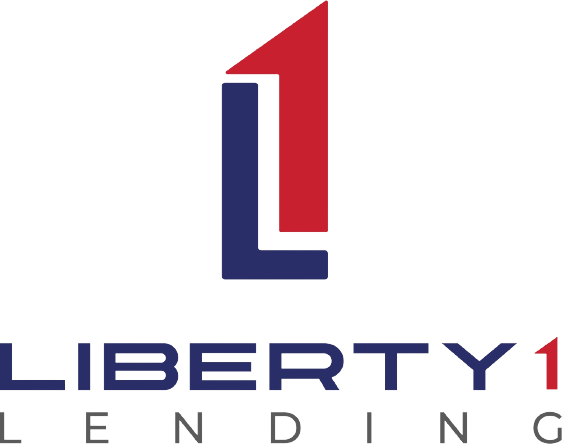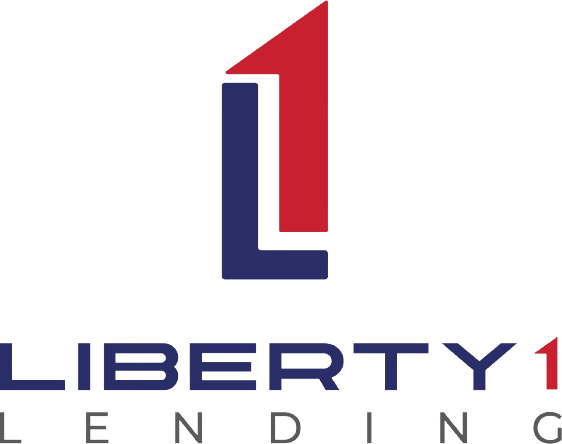Liberty 1 Lending Inc.
NMLS# 2551187
We Find The Right Mortgage For You


Have a quote from another lender? Let's see how much money we can save you.
The Preferred Mortgage Broker
- Live Rates under 30 seconds
- 15 days or less closing
- Thousands in Savings
Expertise You Can Trust

The traditional mortgage process sucks
Value Your Savings
You're afraid of paying thousands more than you should
Reveal True Costs
You have no idea what your mortgage really costs
Clear Mortgage Path
You feel confused about the mortgage process
Ease Loan Process
You wish getting a mortgage was 10 times easier
Doubtful Eligibility
You’re struggling to know if you qualify
Unseen Loan Factors
You don't know... what you don't know
Quick Answers/Blog
Learn all about personal finance, home buying, home loan mortgage, and home refinance.
Primary Residence vs. Investment Property vs. Secondary Home
When you apply for a mortgage, your lender will ask if this property will be your primary residence, a second home, or an investment property. Your answer will determine what…
Understanding Private Mortgage Insurance
Private mortgage insurance (PMI) is a type of protection that helps protect lenders’ investments but doesn’t protect borrowers against losing their homes if they can’t make their monthly payments. The…
When Should I Lock In My Mortgage Rate?
Rate Lock Overview Although they are a crucial part of the home buying process, mortgage rate locks can be complicated for first-time buyers. Everything you need to know about mortgage…
Calculate your payment here
We know what we’re doing
We go above and beyond to create great experiences for our clients, here are some words to prove it.
Frequently Asked Questions
We are here to guide you every step of the way. Explore our FAQs to learn more about our services and how we can help you achieve your homeownership goals.
Your credit score is one of the key factors that lenders consider when determining the interest rate they are willing to offer you on a mortgage. In general, the higher your credit score, the lower your mortgage rate will be. This is because borrowers with high credit scores are considered less risky to lenders. As a result, lenders are willing to offer them lower interest rates to purchase their home.
A credit score of 740 or higher is considered excellent and can qualify you for the best mortgage rates. A score between 700 and 739 is considered good and may result in a slightly higher interest rate. A score between 580 and 699 may result in an even higher interest rate. Scores below 580 are considered poor and can result in difficulty getting approved for a mortgage or, if you are approved, a significantly higher interest rate.
Both mortgage brokers and credit unions can be good options for refinancing or purchasing a home.
Credit unions are nonprofit organizations that are owned and controlled by their members. If you have an account at a local credit union, you’re likely a member. Although credit unions offer the best auto loan rates, they often have mortgage rates that are not as competitive. In some cases, they may provide personalized service and flexible underwriting criteria. Additionally, credit unions offer additional financial products and services that can be beneficial to their members.
Mortgage brokers, on the other hand, specialize in mortgage loans. They often do not offer other financial products. Brokers find lenders with great rates and help borrowers choose the option that meets their needs best. At Liberty 1 Lending, we have access to a wider range of mortgage products with low rates, from different lenders and can help you find the best mortgage to meet your needs. For most borrowers, their best loan will be a 30 year fixed mortgage. Additionally, we can help you navigate the mortgage process from submitting your application all the way through funding.
In general, if you’re looking for a wide range of mortgage options and personalized advice in Utah, a mortgage broker may be a better option for you.
- Conventional mortgage: A conventional mortgage is the most common mortgage type there is. It’s a loan that is not insured or guaranteed by the government. Conventional loans (sometimes called conforming loans) are an ideal loan for borrowers with good credit and a stable income. Conventional mortgages usually require a higher down payment and have strict underwriting criteria. Conforming mortgage limits do apply.
- Federal Housing Administration (FHA) loan: An FHA loan is a government-backed loan that is designed to help lower-income and first-time homebuyers purchase a home. FHA loans have more lenient credit and income requirements, and they require a lower down payment. In 2023, Utah’s FHA loan limits range from $472,030 to $1,089,300 for a single-family home.
- Veterans Affairs (VA) loan: A VA loan is a government-backed loan that is available to eligible active-duty military personnel and veterans. VA loans have more lenient credit and income requirements and require no down payment. There are limits on VA loans in Utah, and they vary by county.
- Non-Conforming or Jumbo Loan: These loans are designed for high-income borrowers looking to purchase a high-value property with a loan amount higher than conforming loan limits. You can get a Jumbo adjustable-rate mortgage (ARM) or a Jumbo fixed-rate mortgage. They are not insured or guaranteed by the government. They are the main mortgage option for high loan amounts. Jumbo loans usually require 10% down.
- Adjustable-rate mortgage (ARM): An adjustable-rate mortgage is a type of mortgage where the interest rate changes over a predetermined schedule. ARMs usually start with a lower initial interest rate, and the rate adjusts over time, usually making the monthly mortgage payment more expensive.
- Fixed-rate mortgage: A fixed-rate mortgage is a type of mortgage where the interest rate remains the same over the entire term of the loan. This can make budgeting for your monthly mortgage payment easier, as the payment remains the same over time.
A mortgage broker and a bank are both options for obtaining a mortgage loan, and each has its own advantages and disadvantages.
Using a mortgage broker like Liberty 1 Lending can be beneficial because brokers have access to a wide range of mortgage products from different lenders. This means that we can help you find the best mortgage for your needs and circumstances, saving you time by shopping around and comparing offers from multiple lenders for you.
Additionally, we can help you navigate the mortgage process, offering guidance and advice. We can also help you understand the different types of mortgages available, explain the terms and conditions of each one, and help you choose the best option.
On the other hand, some people prefer to use their own bank as a lender because they already have a relationship with the bank and trust the institution. Banks may also offer special deals or discounts to their existing customers, and you may be able to take advantage of these if you have an account with the bank. The tradeoff is, because banks have to spread risk across their lending products (including auto, and other loans), bank mortgage rates are typically higher than rates that mortgage brokers have access to.
Ultimately, the choice between using a mortgage broker or your bank as a lender depends on your individual needs and circumstances. You should consider factors such as your credit score, financial situation, and the type of mortgage you need before making a decision.
Mortgage brokers have access to a wide range of loan products from different lenders, and we can help you find the best loan for your needs and circumstances. Some of the specialized loan products that many mortgage brokers can offer include:
- No Cost Loans: This is a mortgage strategy where you take a higher interest rate in exchange for a credit that covers some of the loan costs.
- Portfolio loans: Portfolio loans are mortgage loans that are held and serviced by the lender instead of being sold on the secondary market. These loans may offer more flexible underwriting criteria and loan terms for borrowers with unique financial circumstances. These can be a great alternative if you’re seeking alternative financing.
- Investment property loans: Investment property loans are designed for borrowers looking to purchase a property for investment purposes. These loans may have higher interest rates and fees, and they may have different underwriting criteria than other types of mortgage loans.
















